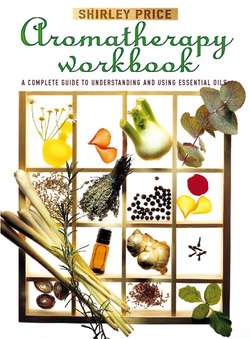Читать книгу Aromatherapy Workbook - Shirley Price - Страница 33
Organically Grown Oils
ОглавлениеThe term ‘organic’ has different meanings to different people. To the aromatherapist it probably conjures up a vision of aromatic and medicinal plants growing in unpolluted conditions. To the chemist, it simply means a substance which contains the carbon molecule, for example, sugar. The French term biologique or ‘biological’ is probably a safer term to use when referring to organic plant production.
Many of us would like to see a return to organic growing for everything – it is better for the soil, better for the environment and generally results in a superior product. However, organic growing methods entail heavy labour costs, sometimes yielding less attractive results – compared (sadly) with chemically assisted supermarket-type produce. The improvement in flavour of organic fruits and vegetables should make up for the – often – smaller size and sometimes less attractive appearance!
Often, produce claiming to be organic is not, and it is necessary for British produce to have a certificate, e.g. from the Soil Association, as proof, which can be asked for by any discerning or suspicious shopper.
The same principle applies to the growing and buying of organic essential oils, the certificates being awarded by the country in which the plants are grown, e.g. Natur et Progrès, Biofranc, etc. in France, Demeter in Germany, and so on.
It is obviously better for a plant to utilize the nitrogen, phosphorus and potassium (NPK) in the soil than to be fed with chemically produced NPK. The farmers in Egypt, where some of our oils come from, occasionally use potassium sulphate and ammonium sulphate from local natural deposits beside the lake. Pesticides are rarely, if ever, used, yet I must say that if a swarm of locusts set upon their fields, I for one would forgive them for using them – I would not expect them to sit back and watch their crops being eaten. After all, their livelihood is at stake!
I believe that to have organic plants for consumption, i.e. in the production of dried herbs and fresh fruits, is an admirable idea. Although we do stock certificated oils, we also have some which are not certificated but are from biologically grown plants; I am not keen to claim these as organic for the following reasons:
1 It is a very expensive process, involving inspectors examining the soil and testing the plants from time to time for fertilizers and pesticides. The certificate-awarding body claim money not only from the farmer, but also at each transaction through to the final one, so the price of the essential oil at the end is rather high. By the way, nitrogen, phosphorus and potassium do not come through in distillation.
2 It cannot be taken for granted that a field of biologically grown plants is always free from contamination. What about acid rain, air pollution, polluted ground water, aerial crop spraying, radioactivity e.g. Chernobyl, etc. – all beyond the control of the farmer?
Nevertheless, for those who (like several of our French farmer suppliers) believe in natural methods, the belief itself has to be the reason for wanting organic essential oils and if these beliefs are serious, it is a pity to have to escalate the price by buying proof, unless it is impossible to sell the crop (or the oils) without it. It may come to this one day, simply because some people will sell oils without certificates, claiming they are organic, when in fact they are not – just like the fruit and vegetable trade!
